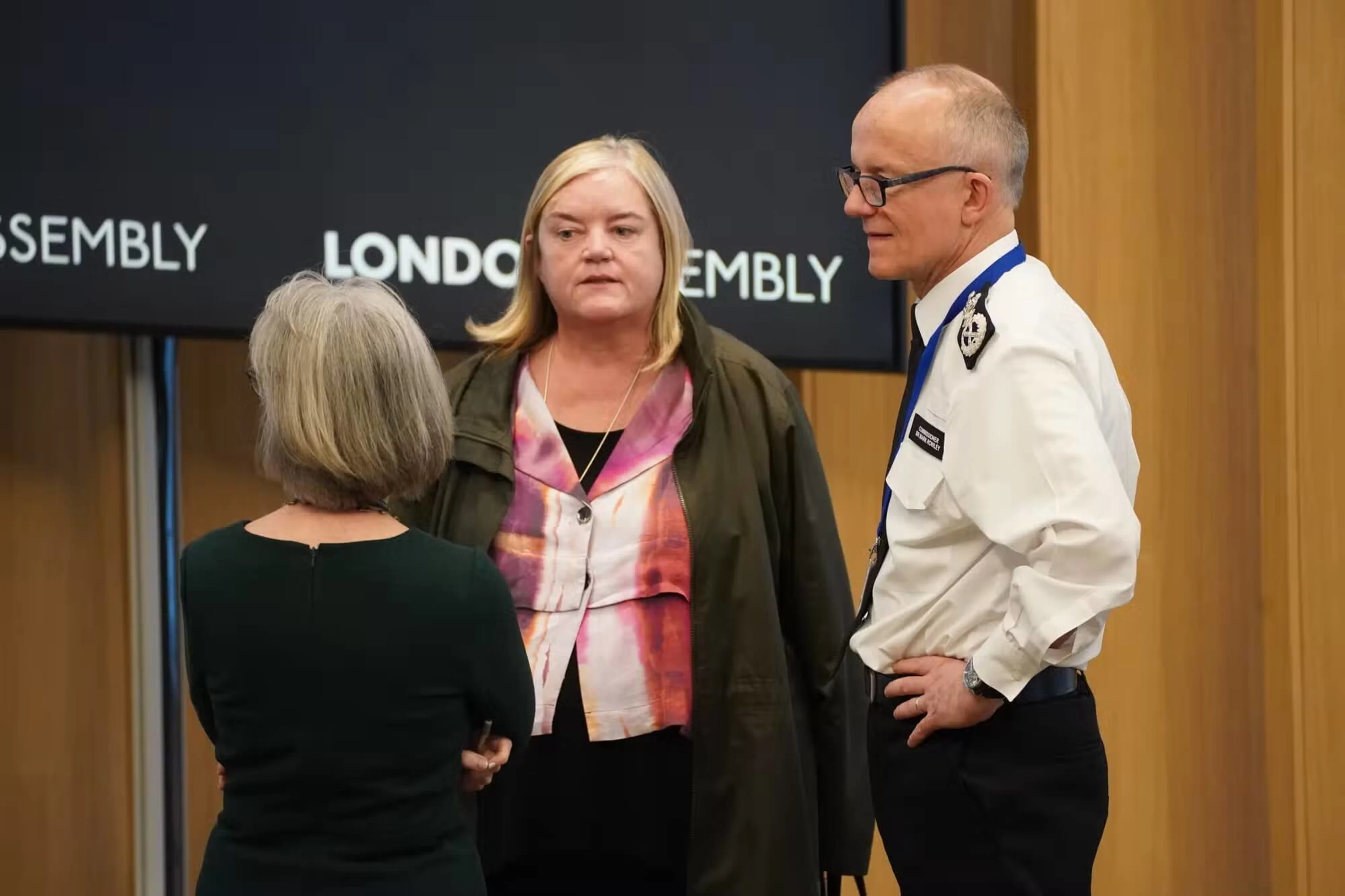I can’t count how many times I have heard blatant misogyny, racism, and homophobia run rampant in everyday spaces. Passing through classrooms, corridors, offices, and pubs like an infectious virus. Usually laughed off and placed into the background, sugar-coated with the excuse that ‘it’s just banter’. Lad banter is endemic to British culture. Weaving bigotry into digestible ‘humour’ eases the acceptability and normalisation of dangerous messages. If all your mates are laughing at it, why shouldn’t you?
But lad banter shouldn’t be laughed off or accepted: it is deeply insidious and needs stopping in its tracks.
Hateful ideologies are so prevalent within social interactions that we have become numb to their power. They become white noise. Behaviours that are becoming scarily mundane: catcalling, unwanted touching in nightclubs, and walking home with our keys between our fingers starkly exhibits the normalisation of extreme misogyny. Schoolboys are relaying viral Andrew Tate quotes like ‘you have to bear the responsibility of rape’. Racism, homophobia and hate crimes litter the streets. The fear that women, girls, the LGBTQIA+, community and ethnic minorities hold in the U.K. is tangible. Our second-class status is rooted in misogynistic, racist, and homophobic language. Language that is seeping with poison; wielded to appear funny and harmless, so that it can be buried deep under a mask of ‘banter’ to prevent its exposure.
We see time and time again the dismissal of venomous ideas being palmed off as ‘just banter’. Systems have failed us, horribly, by not registering the insidious nature of this dismissal. Take the University of Warwick and the exposure of the media dubbed ‘rape chat’ between 11 male undergrad students in 2018. Messages exchanged on Facebook included vile rape threats: one individual wished to ‘rape the whole flat to teach them all a lesson’, and another asserted that a student (who had been sexually assaulted) was ‘not attractive enough for all those things to occur to her.’
![Screenshots of messages from a Facebook group chat at The University of Warwick containing several conversations concerning sexually assaulting other students, including racist and misogynistic language. Some of the messages read: ‘What do we do with girls? [RAPE]’, ‘Sometimes it’s fun to just go wild and rape 100 girls’, ‘Even the pakis??’, and ‘I will pull anything with/without a pulse’.](https://res.cloudinary.com/fledger/image/upload/c_scale,w_3840,q_75/v1679512746/post/lad_banter_warwick_fyv942.webp)
The chat was uncovered by a female student who saw the messages on her friend’s computer. When questioning him, ‘he dismissed the chat's contents as "how boys talk", saying it was a joke’. The chat was also casually categorised by the students involved as their ‘lad chat.’ And that’s where the immense danger lies. The perception that permeates the U.K. is that lad banter is harmless fun. It’s not to be taken too seriously and if you do, you’re sensitive and can’t take a joke. But the reality is that it’s not just harmless fun, is it? If we absolve hateful ideologies of their insidious power by claiming ‘it’s just a joke’ - or even worse, exalting these ideas to a status of approval - then we tell victims that their case stands no chance. How many cases then go unheard because the victim is too scared that they will be undermined and that they won’t be believed?
Language holds such power and when it is used in a hateful and discriminatory way, it needs to be taken as seriously as action. The distressing misogynistic, homophobic, and racist messages exchanged in WhatsApp messages between Met officers being claimed as ‘banter’ shows us that an overhaul in cultural thinking is gravely needed. Only after the murder of Sarah Everard, messages between Wayne Couzens’ (recently sentenced for indecent exposure) and other police officers exposed discussions about sexually assaulting a drunk woman, genital mutilation, and claims that domestic violence victims were ‘women who didn’t listen’. Couzens’ nickname was ‘the rapist’ – a detail that HM Chief Inspector of Constabulary Sir Tom Winsor, and officers within The Met, knew about.
The grimness and the threat of these disgusting ideas were not treated and prevented early enough and once again: we have been failed by the institutions which claim to serve us. During Couzens’ sentencing, he was faced with the woman that he assaulted a few months before the heinous murder of Sarah Everard. The victim told the courtroom that if The Met had taken her allegations seriously - vocalising the stark, tragic repercussions of this cultural ignorance - that ‘we could have saved Sarah’. The problem with ‘lad banter’ doesn’t just lie in a group of teenage boys catcalling a woman on a street corner. The problem is that when dangerous ideas are dismissed as ‘just’ banter, we construct a breeding ground for predators to get away with their actions.
Women and minorities have been advocating against The Met’s institutional racism, sexism, and homophobia for decades. The MacPherson Report in 1999, which investigated the death of Stephen Lawrence, exposed police brutality and violent racial motivations within The Met. Countless advocates and activists, victims of racism, misogyny, and homophobia have been desperately calling for change. The recent Casey Report (a damning exposure of what Baroness Casey has identified as the ‘boys club culture’ within The Met) shows a vile culture of discrimination that has been cultivated - and stood unyielding - within the institution for a long time.

Lad banter is also extremely damaging to men. If your hyper-masculine social environment is built upon toughness and predatory behaviour is championed, then any deviance from this is heavily repressed. The pack mentality is a key element of the chokehold lad cultures have in the U.K. More likely are we to be a bystander than to speak out against what the majority are saying. Vulnerabilities and sensitivities are ridiculed and actively discouraged, leading these spaces to become fertile ground for the liberation of hateful ideas.
Also terrifying is the potentiality for vulnerable males to slip between the cracks. Figures like Andrew Tate are routinely looking for their next bout of lonely and impressionable males that they can catch in their poisonous webs. Fresh meat for radicalisation. The Guardian writes that ‘many Tate videos appear, at first glance, to be harmless, even funny.’ Humour and ‘banter’ provides on its surface a digestibility that can appear enticing. It is a vehicle which successfully reels individuals into a world of hate disguised as a community that’s just having fun. These men are seduced into a world built on the malevolent subjugation of others - a world that is hard to become distanced from once you’ve been welcomed in.
A solution lies in education and early intervention. Organisations like End Violence Against Women have repeatedly called out for an urgent evaluation of the way we educate young males. Featured in their campaign is a 2021 Ofsted review of sexual abuse in schools and colleges, finding that ‘9 out of 10 girls had experienced sexist name calling and 92% of girls had been sent unsolicited explicit pictures or videos’, showing just how pervasive sexism still is.
The failure of schools and universities to address issues ranging from casual sexism and micro-aggressions to hate speech and sexual harassment is intolerable. The University of Warwick was rightly condemned for its response in 2018. Their inability to scrupulously address the severity of the ‘rape chat’, cultivated an unsafe and fearful environment for women on campus whilst also telling the men involved that this behaviour was okay. The institution’s ignorance of the culture they were condoning lies in the detestable fact that after the students involved were punished with expulsions and lifetime bans, two appealed and were awarded a reduced ban from ten years to one.
We need to root out the weeds. We need to nip it in the bud. Schools should be evaluating how young boys look at and communicate with girls and women. Extreme misogyny, racism, and homophobia should not be getting to the level of normalisation that they have. Institutions and workplaces should be vigilant and rigorous. They should care enough to investigate and explicitly condone behaviour that seeks to ridicule, spread hate, and inflict violence towards women and minorities.
Education is a crucial building block to implementing change: if smaller acts were stopped in their tracks and explained why they were wrong and the consequences that they could lead to, the bigger things would be less likely to materialise. Language and ideas that we let slip through the cracks (bragging about pulling a girl near unconscious on a night out or objectifying women like slabs of meat, for example) are like menacing skeins. They thread together to assemble a cultural acceptance, and appraisal, of extreme misogyny.
It begs the question though. Do we really care enough to stand up and speak out? Why do we, most of the time, turn a blind eye?
Picture it: a work colleague says something inappropriate, and everyone looks around the room to see if anyone else has registered. Rarely do we ever dispel our fears of judgement to call it out. People say it’s too much of a hassle or ‘he always says things like that and doesn’t mean any harm by it’, but sexism, racism, and homophobia are harmful - and we all know that. So why do some people get a pass to say disgusting and hateful things because they’re ‘having a laugh’. Jokes do not require bigotry and discrimination.
Lad banter is a cover-up. It is a pathetic excuse for accepting dangerous and violent rhetoric. We need to care enough to want to stop it in its tracks. The more we allow these ideas to go undetected, the more we allow acts of nauseating and infuriating brutality to take place. Silence is indeed violence.
Written by
Lauren Chadwick22 year old English Lit graduate. Fervently interested in feminism, the arts, education, and advocacy. Constantly dreaming about moving to the mountains to read and stare at the moon.
Read next
We need to talk about Toxic Masculinity

Matt Donno
Is it time men stay in their lane?

Hannah Leslie
What men really think about the 'Male Pill'

Archie Rankin
Weekly emails
Get more from Lauren
The Fledger was born out of a deep-seated belief in the power of young voices. Get relevant views on topics you care about direct to your inbox each week.
Write at The Fledger
Disagree with Lauren?
Have an article in mind? The Fledger is open to voices from all backgrounds. Get in touch and give your words flight.
Write the Contrast

